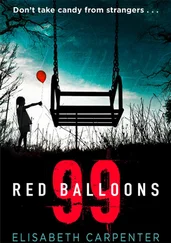Many hours later, the Land Cruiser came to a stop in a small dusty village where the air was thin and the night was very cold. One of the men in the car gave Husam al Din a wool blanket, and he wrapped it around himself and was led to a small house made of mud brick. A hard bed awaited him, and he spread his blanket and slept the first night of his new life.
In the village, he met men who had fought the Soviets. These men were lean and hard. They wore their skin like leather, and not one of them showed a smile. These were warriors who had slept out on the unforgiving ground among scattered rocks, living in crags and caves when everything froze solid. They had gone days without food or water, hiking the high passes on ragged shoes and bloody feet, fighting with antique weapons that were scavenged, rebuilt and pressed into service. These men were giants in Husam al Din’s eyes, and those who were wounded bore the scars of war like a badge of honour. It was these men who would be his trainers.
* * *
Months passed, then years. Each day was the same as the last, filled with prayer and training. Weapons from all around the world were there for his study, and he learned to dismantle and re-assemble rifles, shotguns and handguns in the dark of night or while his eyes were covered. From scattered components thrown on the dusty ground, he was able, by touch alone, to pick out the right pieces, clean them and assemble a weapon.
It was the same with explosive devices, firing systems and booby traps. On the training range, anti-tank and anti-personnel mines were booby-trapped and buried, and he was required to locate and disarm them. Then he devised a different way to use the same components to booby-trap the mine and lay it for the next trainee to locate and disarm. The mines were dummies, but the blasting caps and booby-traps were live, and a mistake could be painful and possibly even disabling. Dangerous as the training was, humiliation from his peers was the biggest deterrent to failure. As part of his demolition training, he was taught how to use everyday household products to formulate and detonate improvised explosive devices.
During his second year in the village, he was schooled as a driver and mechanic, and was taught how to defeat automobile security systems and steal a car without getting caught. High-speed attack driving techniques were part of the curriculum, as well as counter-attack methods, the first training him to chase another vehicle and run it off the road and then how to avoid being the victim of the same thing.
In his third year, he was taken to a remote beach in southern Pakistan and taught powerboat operations, to prepare him in every way to conduct a suicide mission against enemy ships, if he were ever called upon to do so. The training was comprehensive, including the use of radar, GPS, electronic chart plotters and the use of paper charts and rudimentary navigation tools in case electronics were not available. He learned to operate marine radio systems and to rig up an emergency antenna.
Regardless of the nature of the military training Husam al Din was undergoing while at the village high in the mountains of the tribal territory, every day included strict adherence to the schedule of prayer and the study of Islamic fundamentalist doctrine. With what he considered to be a righteous pride for his people, he looked upon the old men, the weathered warriors of the Soviet conflict. They were his teachers, his mentors, his idols. He listened to their stories and admired their scars. Someday, he vowed to himself , I will wear the scars and be a hero. Perhaps one day, a martyr. I will be the Sword of the Faith, as my name has destined.
* * *
In October, 2001, the Americans invaded Afghanistan and for Husam al Din the reality was that the infidels of the new holy war were the Americans.
September, 2007 – Northern Afghanistan
“Sergeant Adams,” the voice called from across the empty street. “I’ve got mail for you.” Josh Adams had been in Afghanistan for seven months, and it seemed that incoming mail was never frequent enough.
“Thanks, corporal,” Adams shouted as he sprinted across to meet the young troop who handed him the envelope. “Ah, good, it’s from Rachel,” he said as he held the envelope to his face and inhaled. “Hmmm, she must have forgotten the perfume this time. Well, no matter, at least it’s a letter. I do love to hear from that girl.” He grinned at the corporal. “Now you better run off and deliver the rest of the mail. I’m going to sit down here in the shade and enjoy myself.”
“Right, sergeant,” the corporal half shouted. He was young and was new to the unit, so he was a bit intimidated by sergeants and tended to come to attention and shout in their presence.
Josh laughed at the corporal. “Stick around; you’ll get over that.”
“What?” the corporal asked.
“Ah, never mind.” Josh laughed again. “I was just joking.”
“That’s one of the things I like about you, sergeant,” the corporal said. “You have a great sense of humor. Over here, I think that’s very important.”
“Why thanks, corporal. Better keep moving. Lots of other guys waiting for their mail.” He pulled out his Special Forces combat knife and carefully slit the envelope open, then pulled out the single sheet of paper. There wasn’t much writing on it, and that worried Josh right away.
Dear Josh,
I don’t quite know how to say this, so I better just get it over with. You and I have been together so long, but it seems like the time we’re apart is even longer than the time we’ve spent together. The army is your life. I understand that. But I have to have a life, too. And I just can’t have it with you. Rand Stroppe has proposed marriage – something you never seemed to get around to. I have accepted. We will be getting married next month. I’m sorry to have to break it to you this way, but I couldn’t think of anything else to say.
Goodbye, Rachel
He pushed his helmet back and sat in stunned silence, collapsed back against the wall as if all the air had gone out of him. The sheet of paper rustled in the breeze, held by loose fingers of a hand that lay limp on the ground. Two of the village men walked by and looked at him, but he didn’t even pay attention to them. The men found that very strange, because these Special Forces soldiers were always sharp and aware of everything that went on around them.
“Marhaba, Sergeant Adams,” one of the men said, meaning hello. Josh ignored him. “Kayfa haluk?”
Without looking up, Josh muttered, “Bihey. I am fine.”
“You do not appear to be fine,” the man continued.
Sergeant Adams was the A-team O&I specialist. All operations and intelligence men were trained as interpreters, so he was fluent in the Arabic language. He finally looked up into the watery eyes of an old man. The younger man stood back a little ways, allowing the elder gentleman to do the talking. “Well, I’m not really fine,” the sergeant admitted. “My girlfriend back home has sent me a letter.”
“Oh,” the old man said, smiling. “That must make you happy.”
“Normally, it would. But this letter is to tell me ma’assalama – goodbye.”
The old man’s gaze fell to the ground, and he wiped his eyes. “Oh,” he said softly, “that is too bad. A sad day for you.”
“Yes, very sad,” Sergeant Adams agreed.
“I am sorry for you,” the old man said. “May Allah bless you.”
“Shukran, shukran,” Josh said softly, thanking the man twice for his kind wishes, then lowering his head as if to sleep. But he did not sleep, he just thought about the letter.
One thing Josh Adams had discovered while in Afghanistan is that the rural folks in this unfortunate country were just as nice as the folks in his rural home in South Carolina. These people were caught in a bad situation, and had been for decades. But now the Special Forces teams were in the villages trying to befriend the people and help them recover from the devastation of the wars. There were schools to build, water and sanitation systems to repair, and bad feelings to mend.
Читать дальше












